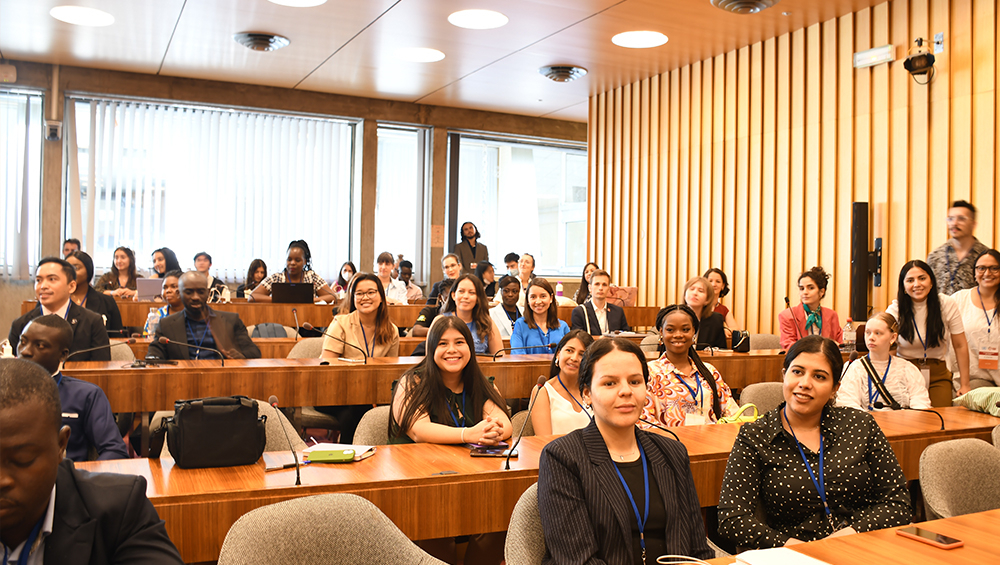GCE Statement on the Adoption of the Transforming Education Summit Youth Declaration.

Enough Solidarity and Inclusion, Time for Action
The Youth Declaration launched at the Transforming Education Summit mobilisation day, September 16th, 2022, marks the beginning of a significant moment in committing to ensuring youth and students are co-creators and equal decision-makers. It is time.
Education is a human right, and hence the demands in the declaration are not in any way unreasonable or unachievable. Rather, they are tantamount to the equal provision of education for all.
The primary takeaway from the youth declaration is that decision-makers engage with youth in all our diversity, including elected student representatives, in a meaningful, effective, diverse, and safe manner in the design, implementation, execution, monitoring, and evaluation of the process to transform education. But there is a need to go beyond inclusion and engagement. Youth and Students should be at the decision-making tables, leading the discussions and creating education policies with equal footing and power. It is our responsibility and our right of youth and students to create policies for our education and future.
This seeks to address the long-standing issue of lack of meaningful inclusion and participation of youth and student movements and tokenistic engagements in advocacy spaces. There is a myriad of structures and fora which are engaging with development issues, particularly those focused on education. The main issue that has arisen from these fora is their tokenistic, cherry-picking and “tick box” approaches to engaging youth and students.
It has become apparent that the current solidarity and inclusion of youth and students is based on the narrative that youth and students are beneficiaries and not partakers of policy spaces. This has driven national, international, and local institutions to fall into patterns of tokenism and fail to be genuinely inclusive of young people.
Thus, GCE stands behind the declaration and demands that decision-makers promote and invest in youth and student leadership and support systems for representation.
Now, the real work begins, holding decision-makers to account for the shared vision of youth and students for transforming education.
GCE Youth and Students demand a #PowerShift! #ClaimOurEducationAgenda!
Key messages on the Youth Declaration
The Youth Declaration encompasses key comprehensive priorities in education from the voices of youth and students and aligns with the GCE’s core vision on Youth and Student engagement. GCE believes that youth and students are the experts on their own contexts, challenges and solutions to these challenges facing them and their futures. The genuine and meaningful participation of youth and students is necessary for developmental agendas. There is an urgent need for a paradigm shift – one that moves from tokenism to one that truly engages young people as full partners in the design, implementation, and evaluation of strategies and programs and policies on challenges facing education.
GCE recognizes the urge for decision-makers to decolonize and democratize knowledge production, pedagogy, and learning.
“If we want to understand decolonisation in simpler terms, the word is ‘power’. Understanding and power in all its terms, race, caste, age, languages, geographical location and sexual identity, what you represent, what influencing power you have in politics.” – GCE Youth Constituency Representative
It is also vital to see that gender-transformative and disability-inclusive education were highlighted and prioritised in the declaration and, in particular, the provision of quality comprehensive sexuality education for all learners in and beyond schools.
The declaration further tackles the critical issue of education financing, an essential matter of urgency for the GCE Youth and Student constituency.
“Education is not about affordability, it is about social justice and human rights, it’s a matter of safeguarding the future” – GCE Youth Constituency Representative.
Gaps in the Youth Declaration
Some gaps, however, remain, particularly in the areas of education in emergencies. GCE recognizes that the declaration demands education for displaced persons by reducing systemic barriers, a critical issue that needs continuous attention and funding. However, there is no mention and apparent demand to ensure the continuity of education during conflict and take all measures to protect the educational facilities (schools) during wars in accordance with international humanitarian law, despite the fact that out-of-school children in conflict remain a huge issue.
What Next? Holding Policy Makers Accountable
- On the national level, locally, there is a need to adapt demands to the national and local context of each country.
- On the international level, youth and student advocates should actively support in solidarity ongoing national campaigns that aim to amplify the Declaration’s demands.
- Engage the public (especially youth) in advocacy activities and sessions.
- Engage all stakeholders (CSOs, unions, media and others) in the efforts to put pressure on governments to achieve the demands.
GCE commitments toward implementation and accountability of the Youth Declaration
- Launch an action plan coordinated by the SDG4 Youth Network to take the aforementioned demands forward beyond the Summit.
- Raise awareness of the demands among all stakeholders (CSOs, unions, media, community, and others).
- Host a deep dive on the youth declaration implementation with youth and students globally.
- Encourage GCE members to collaborate and coordinate with global education youth advocacy networks to establish strategic next steps to advocate in solidarity.
End


